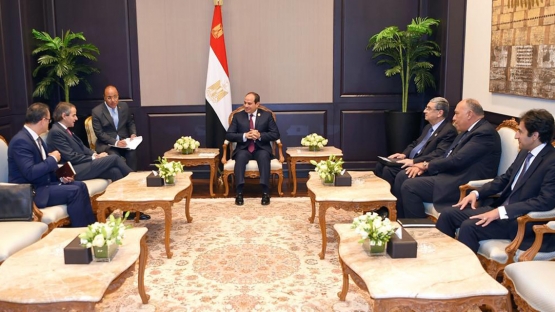IAEA Director General Rafael Mariano Grossi expressed the IAEA’s continued support for Egypt’s efforts to introduce nuclear power, during a meeting today with President of Egypt Abdel Fattah el-Sisi in Sharm El-Sheik. At the World Youth Forum, where he was a panellist, he spoke about the role of nuclear power in meeting development objectives and fighting climate change at the same time.
At the meeting between Mr. Grossi and President el-Sisi, the two discussed Egypt’s plans to build a nuclear power plant at the El-Dabaa site on the Mediterranean coast to meet increased electricity demand. The selection of the site has been approved by the country’s nuclear regulator, the Egyptian Nuclear Regulation and Radiological Authority (ENRRA), a milestone in the licensing process.
Mr Grossi told President el-Sisi that the IAEA would continue to support Egypt’s efforts to establish the country’s first nuclear power plant.
“The nuclear power programme will bring a new dimension to the relation between the IAEA and Egypt,” he said.
Support so far has included a Site and External Events Design (SEED) review mission on safety standards, requested by the ENRRA and carried out by IAEA experts, to the El-Daaba site in February 2019. At the invitation of the Egyptian government, the IAEA also carried out an Integrated Nuclear Infrastructure Review (INIR) mission in November 2019 to assist the country in the development of the infrastructure required for the safe, secure and sustainable use of nuclear power.
The highest standards of safety and security will be observed during the construction and operation of the El-Dabaa power plant, President el-Sisi said. He added that Egypt is willing to share its nuclear-related facilities and expertise in the various peaceful applications of nuclear energy with experts from across Africa and the Middle East. He also acknowledged the important role of the IAEA in nuclear verification.







